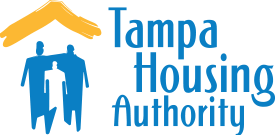Protecting Our Community: Preventing Sex Trafficking Among Vulnerable Populations

by Jerome D. Ryans, President & CEO, Tampa Housing Authority
As the President and CEO of the Tampa Housing Authority, my primary mission is to ensure the safety and well-being of our residents. Our community comprises many low-income families, young adults, and single parents-groups that unfortunately often become targets for sex trafficking predators. It is imperative for housing leaders to address this critical issue and provide our residents with the knowledge and resources they need to protect themselves and their loved ones. In this blog, I will share essential tips for preventing sex trafficking, drawing on valuable recommendations from the Centers for Disease Control and Prevention (CDC).
Understanding the Risk Factors
Sex trafficking is a heinous crime that exploits the most vulnerable members of our society. Predators often prey on individuals facing economic hardships, emotional instability, or lack of familial support-conditions that many of our residents might experience. Traffickers use manipulation, coercion, and deceit to lure victims and force them into commercial sex acts. By understanding these risk factors, we can better equip our community to recognize and avoid danger.
Strengthening Community Awareness
One of the most effective ways to prevent sex trafficking is through education and community awareness. Knowledge is power, and being informed about the tactics traffickers use can significantly reduce the risk of falling victim to their schemes. The CDC emphasizes the importance of community-wide efforts to raise awareness about sex trafficking. Here are some key points to consider:
Recognizing warning signs. Teach community members to identify potential red flags, such as someone showing signs of physical abuse, appearing unusually fearful or submissive, lacking personal identification, or being unable to speak for themselves.
Building strong relationships. Encourage open communication and trust within families and communities. Predators often target individuals who feel isolated and unsupported. By fostering strong, supportive relationships, we can create a network of protection around those who are most vulnerable.
Providing safe spaces. Ensure that our housing facilities are safe and secure environments. Implementing security measures, such as ongoing patrolling, surveillance cameras and adequate lighting, can deter traffickers from targeting our residents.
Empowering Individuals with Knowledge
In addition to community-wide efforts, it is crucial to empower individuals with the knowledge and skills they need to protect themselves. The CDC recommends several strategies to enhance personal safety:
Internet safety. Educate residents about the dangers of sharing personal information online. Predators often use social media and other online platforms to identify and groom potential victims. Encourage the use of privacy settings and caution when interacting with strangers online.
Self-defense training. Offering self-defense classes can provide individuals with the confidence and skills to protect themselves in dangerous situations. These classes can also be an opportunity to discuss safety strategies and build a sense of community resilience.
Access to resources. Ensure that residents have access to resources such as hotlines, counseling services, and support groups. Providing information about local organizations that specialize in helping trafficking victims can be a lifeline for those in need. In Florida the number to call is (855) 352-7233, this number connects victims directly with the Florida Department of Law Enforcement.
Collaborative Efforts with Law Enforcement
Preventing sex trafficking requires a collaborative approach between the community, housing authorities, and law enforcement. Building strong partnerships with local police and other agencies can enhance our ability to identify and respond to trafficking cases effectively. The CDC highlights the importance of these collaborations in creating a united front against traffickers.
Reporting suspicious activity. Encourage residents to report any suspicious activity to the authorities. Provide clear information on how to make reports and assure residents that their concerns will be taken seriously.
Training staff and volunteers. Train all staff and volunteers at community organizations to recognize and respond to signs of trafficking. Regular training sessions can keep everyone informed about the latest trends and tactics used by traffickers.
Community policing. Support community policing initiatives that focus on building trust between law enforcement and residents. When people feel safe reporting crimes and suspicious activities, our collective ability to combat sex trafficking is significantly enhanced.
At the Tampa Housing Authority, we are committed to safeguarding the well-being of our residents. By raising awareness, empowering individuals, and fostering collaboration with law enforcement, we can take meaningful steps to prevent sex trafficking within our community. Let us work together to create a safe and supportive environment where everyone can thrive, free from the threat of exploitation.
For more information on sex trafficking prevention, please visit the CDC's website.
Together, we can make a difference.



